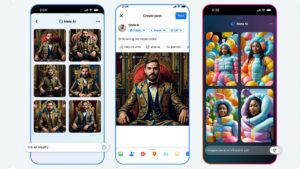Bulgarian QuarkVR is About to Put Virtual Reality on the 5G Network for Deutsche Telekom and Orange
Bulgarian virtual reality streaming software company QuarkVR, which was backed by HTC in 2017, has recently raised a new round of €325K. There are several interesting aspects of this story: first, it’s the biggest round ever for the syndicate investment network CEO Angels Club. Secondly, it might seem as a peanut considering the hype for investments in VR, but as they’re slowing down worldwide and QuarkVR needs to finance some big projects ahead, it was a rational decision to fundraise at home. Last, but not least the startup needed the capital to grow its dev team and continue testing diverse VR applications for the clients of Deutsche Telekom (DT) and Orange.
In 2018, Orange and (DT) have partnered with the Bulgarian startup QuarkVR and plan to launch virtual reality products such as VR calls, meetings and even factory trainings for corporate clients.
“VR is a desired solution for sectors such as automotive, architecture, aviation engineering, esports and even education and corporate trainings”, Krasimir Nikolov, co-founder and CEO of Quark VR, told Trending Topics. The partnership with the telecoms will allow the company to continue spreading the word of corporate applications of VR in Europe.
Last week Nikolov came back from Germany, where he was testing the QuarkVR software on the latest generation of telco equipment – 5G networks. It is part of their DT project that aims to provide factory trainings to a Volkswagen facility. “It’s a small sandbox project but it has the potential to be scaled very fast”, Nikolov explained. The company is also working on undisclosed projects with Orange that aim to bring VR to the mass consumer in the near future.
How is that possible?
QuarkVR was founded in 2014 by Krasimir Nikolov and Georgi Georgiev. While trying to make their own Counter Strike experience more immersive with a developer headset kit, they found out that this hobby tech development might turn into a business. The main product of QuarkVR is a software solution that allows content to be streamed flawlessly on wireless VR headsets. The most important about VR is the speed of the streaming, because the whole virtual environment needs to react to the physical reality and movements of the one wearing the headset. QuarkVR’s software allows precision of up to 2 milliseconds by compressing the streamed content and it’s capable of streaming to several simultaneous users in the same environment with minimal latency. That’s how the VR conference calls are possible.
Fuel for growth
So far, QuarkVR has raised €680K in sum. They received their first funding from the Bulgarian fund Launchub and Vassil Terziev of Telerik joined soon. In 2017, the Taiwanese company HTC was impressed by the technology and invited Nikolov and Georgiev to HTC Vive, their corporate accelerator in San Francisco, and backed them with another €120K. Even though the last time we met them, they were targeting a next round of $1M, QuarkVR just closed it at €325K in order to be able to quickly grow its team of six and get down on its projects with Orange and DT. Seventeen members of CEO Angels Club have invested in syndicate.
‘We all expected VR would be a mass product so far. This is not the case yet. One of the main problems is VR with wireless headsets still doesn’t work properly and the user experience is mediocre. QuarkVR decided to tackle this problem and we think that this is an important element of the equation to accelerate growth in this industry. QuarkVR has just the right team to do that and their business model is promising. The challenge, however, will be to find their niche and protect the technology.” Milen Ivanov, CEO Angels Club, commented.
QuarkVR still doesn’t generate any significant revenues. However, according to Nikolov that’s not necessarily indicative. “One contract with a clients like DT or Orange could turn us into a profitable company”, he said.
Next steps
Even though VR is still not a mass product, the Bulgarian startup is testing some mass consumer products with French Orange. According to Nikolov, even though the technology has developed slower than expected in the past two years, in 2018 the VR users worldwide have grown almost double. This is a good sign as the company is aiming to bring the technology to the mass audience especially for entertainment and educational purposes, in the near future.




























